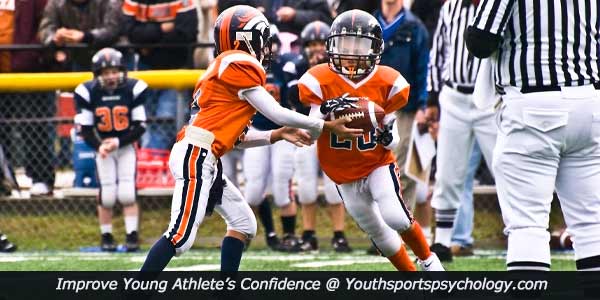
How Young Athletes can Feel and Play Safe on the Field
When kids feel as if their equipment is safe, they likely feel more confident.
However, Mike Oliver, executive director of the National Operating Committee on Standards for Athletic Equipment, says that with expensive equipment, such as helmets, kids can sometimes feel as if they’re invulnerable–and that puts them at risk of injury.
And of course, injury can hurt kids’ confidence. If an injury takes them out of the game for weeks or months, they often worry that they’ll get injured again.
Oliver stresses the importance of parents and kids educating themselves about how to be as safe as possible from injury. For example, in football, helmet fit is most important. Parents and athletes need to be sure that the helmet does everything it was designed to do. One way to do this is to check the status of the helmet certification.
Helmets have stickers that show they have been reconditioned or recertified every two years. “If the family bought the helmet, they would be responsible for seeing if it gets reconditioned or recertified,” Oliver says. But parents and sports kids need to understand more than just how to evaluate a helmet, especially in football. They need to understand how to minimize the likelihood of injury.
“Especially at younger ages, if players feel like they’re wearing equipment that’s going to protect them, it raises their level of confidence,” says Oliver. “This is not always a great thing. I’ve seen this. The more protected you feel, the more bulletproof you feel.”
And if kids feel as if they’re invulnerable, they may play recklessly or focus less on what they need to do to avoid injuries.
Young athletes need to be aware of how they can play in ways that help keep them from being injured. For example, in football, they should try to avoid hitting with their heads as much as possible.
“Reduce the number of times you bang your head on someone or something,” Oliver advises sports kids. “If you get 1,000 impacts in a season, you will likely get a concussion. Try to reduce it to 300 or 200. Keep your head out of the game. Don’t tackle with your head or hit other players with your head.”
Coaches should structure practices so they’re not full contact every day, he adds.
Parents and young athletes should also be aware that some kids are more susceptible to concussions than others. Whether sports kids get concussions depends on the state of their health and genetic susceptibility.
Bottom line: It’s critical to invest in equipment that keeps kids as safe as possible. And young athletes and parents need to focus on playing styles that help them avoid injuries. With both appropriate equipment and knowledge of how to avoid injuries, kids are likely to feel more confident, for good reason.
Listen to the Ultimate Sports Parent Podcast
Related Articles on Kids’ Mental Game:
- Help Sports Kids Feel Safe and Boost Their Confidence
- How to Set Standards of Excellence for Young Athletes
- Why Sports Must be Fun for Young Athletes
*Subscribe to The Sports Psychology Podcast on iTunes
*Subscribe to The Sports Psychology Podcast on Spotify
Improve Your Mental Game From Anywhere In The World

We’re certain that, as a parent, you want to help your child develop confidence and discipline in sports and life. And as a sports parent, you’d love for your children to reach their potential in sports. But encouraging your child to strive for greatness without pressuring them can be a challenge.
You can get expert mental coaching with us from anywhere. Meet with us via Zoom, Skype, FaceTime or phone call. With today’s video technology, we are able to connect with athletes and coaches all over the globe.
Call Us Today to Schedule Your Free 15-Minute Session.
Find Out How Your Athlete Can Benefit From One-on-One Mental Coaching!
